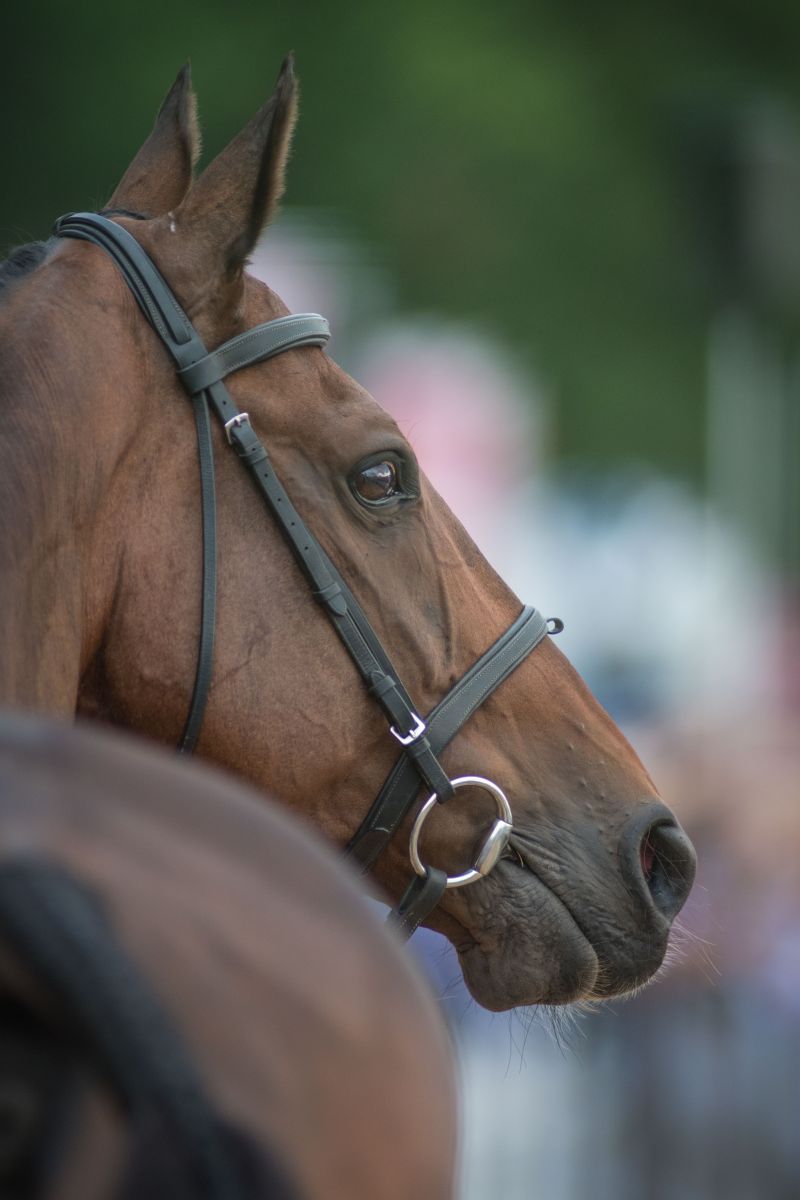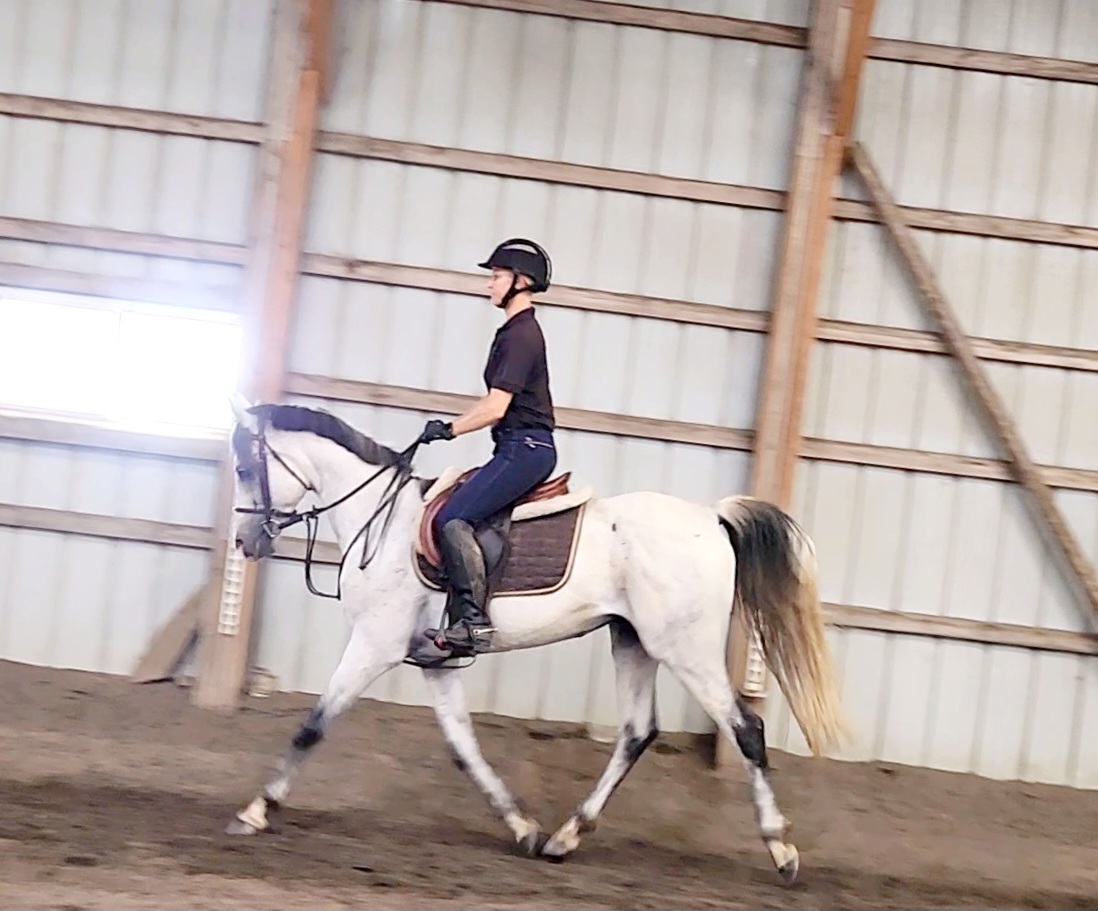“How do you know when to retire a horse?” Kentucky 5* winner Tamie Smith mused in a text conversation recently, speaking of her horse of a lifetime partner, Mai Baum (who, speaking of, will retire after one last fun run at Rebecca Farm later this month). The truth is, I don’t think there’s a tangible answer to this — not when the horse is sound, enjoying his or her job, still producing competitive results.
It’s a question any rider would love to be lucky enough to consider. The responsibility of producing and maintaining a horse at the top levels of sport is a large one. It requires empathy. Patience. Dedication. Trust. Awareness. Respect. And that same responsibility comes again when it’s time to bid farewell to a legacy career.
Last summer, Belgium’s Karin Donckers left Fletcha van’t Verahof — 20 years young this year — at home for the Paris Olympics, having been selected on his full brother, Leipheimer Van’t Verahof for her seventh Games. Fletcha, for his part, expressed his displeasure at being left home. “We left at 12:30 in the night with Leiphaimer,” she recalled. “I went to the stall of Fletcha and I looked in his eyes. He was really watching me, like, ‘come on, you’re gonna take me too!’ I know, I know, I thought. I still think so much about that moment.”
In her mind, Karin knew Fletcha’s tenure at the top of the sport would be drawing to a close soon. Every horsewoman or horseman wants to make that call at the right time — before the horse sustains an injury or begins to sour on the job. And Fletcha, who was bred in Belgium by Peter van Dame-de Smedt, had carried his age well.
Through her own dedication to her program of care and fitness, his body has stayed sound and his mind happy. When you think about the fact that championships run on four-year cycles (or for Europeans, every two years), for the horse to have done as much as he has is, well, astounding.
“It’s a matter to keep him happy,” Karin said. “It’s a bit like me, I guess, because I’m 54 and that’s a bit the same for me. I love the passion for the horse, I love the passion for the sport, and that’s why I like to keep doing it. And that keeps me motivated, that keeps me fit. You know, when I came with the lorry [to come to Aachen], and I opened the lorry, he was like, ‘Oh yeah, wow!’ His eyes were popping out. And he was really like, ‘Yes, I did it again, over here again!’ So, you know, I’m sure that that’s the same for the horse.”
At home, Fletcha lives out, or in a big stall with its own attached outside paddock. Karin insists that once she felt she had the right approach to keeping him sound and happy, it was important not to make too many changes. Stick with what works, she says. “You just have to let him be a horse. You have to listen to them,” she continued. “I know him so well, and that’s what gives confidence. I guess that’s like in a good relationship with people too. You know what you have from each other. You know that you can count on each other. You don’t need much; you grow this path together in the last 13 years. That’s a special bond you have, and so much respect you have for each other. That makes it special.”
“I think I have to follow what he what I always said, and what he deserves, you know?” Karin told me after she finished cross country, clear with time, at Aachen on Saturday. “You want to finish on a good way. And Aachen is something really, really special for the horses, and I think he deserves to finish here.”
To be sure, it wasn’t always a definite path for Fletcha (who is owned by Karin along with Carl Bouckaert and Joris de Brabander), who wasn’t the easiest to produce. “This horse was definitely not the easiest one in the beginning — way too bold and taking strides out and when really way too ambitious,” Karin explained. “It took me almost until he was 11 or 12 before he became easy to ride.”
And so, after another successful Aachen (his fifth time competing here, and the first time he’d been back since 2017), the curtain closes on the career of a horse of a lifetime. An Olympics, two World Equestrian Games, four European Championships, 48 FEI completions. What emerges as Karin’s favorite moment?
“I think the WEG when he was nine years old,” she said after a moment of thought. “He finished the WEG in fifth place. So that was incredible. And then knowing that he did three World Championships, I think that’s also something that not many horses did in eventing, because the World Championship is only every four years. So that’s amazing. On his nine, on his 13, and on his 17.”
Every horse leaves you with lessons, if you’re willing to listen. Karin’s taking what she’s been taught by Fletcha and taking it forward to produce the next generation. “Give your horse a chance and make sure that you give them good education. Also, when it’s not so easy in the beginning, don’t give up on them. Give them a chance. Because often, the very, very good horses are not the easiest ones in the beginning, you know? That’s definitely what I learned.”
Here, she used a Dutch term — pluk de vruchten — that doesn’t really have a direct English translation here — but after consulting with fellow Belgian Lara de Liedekerke-Meier, the meaning became clear: after exercising patience and nourishing something along, you can — if the cards fall your way — reap the benefit and reward.
Tears popping to her eyes, Karin pauses for a moment as we wrapped up our interview. “I’m so happy that I had done 6, 7, 8 years, where it was every time a dream to ride him in cross country, you know? And I’m so grateful. Thanks to my owners and sponsors, we had such a life together. I’m just so thankful that I got this journey with him.”
To see more coverage from CHIO Aachen, click here.

























